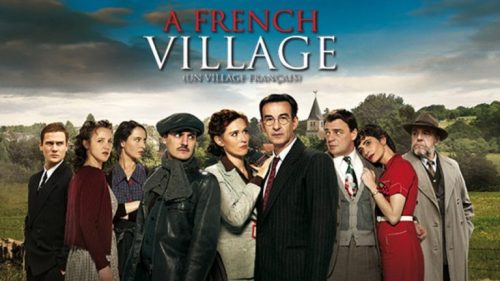The Year of the French, by Thomas Flanagan
(This being St Patrick’s day, I’m again taking advantage of the hook to re-post this review, in the hope of inspiring a few more people to read this incredibly fine historical novel)
Ralph Peters calls this book “the finest historical novel written in English, at least in the twentieth century,” going on to say “except for ‘The Leopard,’ I know of no historical novel that so richly and convincingly captures the ambience of a bygone world.”
In August of 1798, the French revolutionary government landed 1000 troops in County Mayo to support indigenous Irish rebels, with the objective of overthrowing British rule in Ireland. The Year of the French tells the (fictionalized but fact-based) story of these events from the viewpoint of several characters, representing different groups in the complex and strife-ridden Irish social structure of the time.
Owen MacCarthy is a schoolmaster and poet who writes in the Gaelic tradition. He is pressed by illiterate locals to write a threatening letter to a landlord who has evicted tenants while switching land from farming to cattle-raising. With his dark vision of how an attempt at rebellion must end“In Caslebar. They will load you in carts with your wrists tied behind you and take you down to Castlebar and try you there and hang you there”MacCarthy is reluctant to get involved, but he writes the letter.
Sam Cooper, the recipient of the letter, is a small-scale landlord, and captain of the local militia. Indigenously Irish, his family converted to Protestantism several generations ago to avoid the crippling social and economic disabilities imposed on Catholics. Cooper’s wife, Kate, herself still Catholic, is a beautiful and utterly ruthless woman…she advises Cooper to respond to the letter by rounding up “a few of the likeliest rogues,” jailing and flogging them, without any concern for actual guilt or innocence. “My God, what a creature you are for a woman,” Cooper responds. “It is a man you should have been born.” “A strange creature that would make me in your bed,” Kate fires back, “It is a woman I am, and fine cause you have to know it…What matters now is who has the land and who will keep it.”
Ferdy O’Donnell is a young hillside farmer on Cooper’s land. Far back in the past, the land was owned by the O’Donnell family…Ferdy had once shown Cooper “a valueless curiosity, a parchment that recorded the fact in faded ink the colour of old, dried blood.”
Arthur Vincent Broome is a Protestant clergyman who is not thrilled by the “wild and dismal region” to which he has been assigned, but who performs his duties as best he can. Broome is resolved to eschew religious bigotry, but…”I affirm most sincerely that distinctions which rest upon creed mean little to me, and yet I confess that my compassion for their misery is mingled with an abhorrence of their alien ways…they live and thrive in mud and squalour…their music, for all that antiquarians and fanatics can find to say in its flavor, is wild and savage…they combine a grave and gentle courtesy with a murderous violence that erupts without warning…”’
Malcolm Elliott is a Protestant landlord and solicitor, and a member of the Society of United Irishmen. This was a revolutionary group with Enlightenment ideals, dedicated to bringing Catholics and Protestants together in the cause of overthrowing British rule and establishing an Irish Republic. His wife, Judith, is an Englishwoman with romantic ideas about Ireland.
John Moore, also a United Irishman, is a member of one of the few Catholic families that have managed to hold on to their land. He is in love with Ellen Treacy, daughter of another prominent Catholic family: she returns his love, but believes that he is caught in a web of words that can only lead to disaster. “One of these days you will say a loose word to some fellow and he will get on his horse and ride off to Westport to lay an information with Dennis Browne, and that will be the last seen of you”
Dennis Browne is High Sheriff of Mayo…smooth, manipulative, and devoted to the interests of the very largest landowners in the county, such as his brother Lord Altamont and the mysterious Lord Glenthorne, the “Big Lord” who owns vast landholdings and an immense house which he has never visited.
Randall MacDonnell is a Catholic landowner with a decrepit farm and house, devoted primarily to his horses. His motivations for joining the rebellion are quite different from those of the idealistic United Irishman…”For a hundred years of more, those Protestant bastards have been the cocks of the walk, strutting around on acres that belong by rights to the Irish…there are men still living who remember when a son could grab his father’s land by turning Protestant.”
Jean Joseph Humbert is the commander of the French forces. A former dealer in animal skins, he owes his position in life to the revolution. He is a talented commander, but the battle he is most concerned about is the battle for status and supremacy between himself and Napoleon Bonaparte.
Charles Cornwallis, the general who surrendered to the Americans at Yorktown, is now in charge of defeating the French and the rebels and pacifying the rebellious areas of Ireland. Seen through the eyes of a young aide who admires him greatly, Cornwallis is portrayed as a basically kindly man who can be hard when he thinks it necessary, but takes no pleasure in it. “The color of war had long since bleached from his thoughts, and it remained for him only a duty to be scrupulously performed.”
This book is largely about the way in which the past lives on in the present, both in the world of physical objects and the world of social relationships. Two characters who make a brief appearance are Richard Manning, proprietor of a decrepit and debt-laden castle, and his companion Ellen Kirwan:
